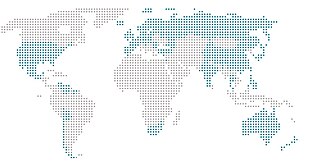Related Research Articles
Eurobarometer is a series of public opinion surveys conducted regularly on behalf of the European Commission and other EU institutions since 1973. These surveys address a wide variety of topical issues relating to the European Union throughout its member states.
Cognitive pretesting, or cognitive interviewing, is a field research method where data is collected on how the subject answers interview questions. It is the evaluation of a test or questionnaire before it's administered. It allows survey researchers to collect feedback regarding survey responses and is used in evaluating whether the question is measuring the construct the researcher intends. The data collected is then used to adjust problematic questions in the questionnaire before fielding the survey to the full sample of people.

The International Social Survey Programme (ISSP) is a collaboration between different nations conducting surveys covering topics which are useful for social science research. The ISSP researchers develop questions which are meaningful and relevant to all countries which can be expressed in an equal manner in different languages. The results of the surveys provide a cross-national and cross-cultural perspective to individual national studies. By 2021, 58 countries have already taken part in the ISSP.
Accurate demographics of atheism are difficult to obtain since conceptions of atheism vary considerably across different cultures and languages, ranging from an active concept to being unimportant or not developed. Also in some countries and regions atheism carries a strong stigma, making it harder to count atheists in these countries. In global studies, the number of people without a religion is usually higher than the number of people without a belief in a deity and the number of people who agree with statements on lacking a belief in a deity is usually higher than the number of people who self-identify as "atheists".
The German General Social Survey (ALLBUS/GGSS - Die Allgemeine Bevölkerungsumfrage der Sozialwissenschaften) is a national data generation program in Germany, which is similar to the American General Social Survey (GSS). Its mission is to collect and disseminate high quality statistical surveys on attitudes, behavior, and social structure in Germany.

Religion in the European Union is diverse. The largest religion in the EU is Christianity, which accounted for 72.8% of EU population as of 2018. Smaller groups include those of Islam, Buddhism, Judaism, Hinduism, and some East Asian religions, most concentrated in Germany and France. Also present are revival movements of pre-Christianity European folk religions including Heathenism, Rodnovery, Romuva, and Druidry.
TARKI Social Research Institute is an independent research centre located in Budapest, Hungary. TARKI conducts applied socioeconomic research in social stratification, labour markets, income distribution, intergenerational transfers, tax-benefit systems, consumption and lifestyle patterns and attitudes in Hungary and, in the majority of its projects, in Europe. TARKI is closely embedded in international collaborations with major European academic partners in various research projects. Senior staff at TARKI all have PhDs with substantive and methodological interests and many hold professorial appointments at major universities. TARKI has its own fieldwork apparatus, capable of carrying out regular empirical surveys on social structure and on attitudes and of managing large scale international research. TARKI also carries out the Hungarian fieldwork of various high-quality international surveys.

The University of Michigan Institute for Social Research (ISR) is the largest academic social research and survey organization in the world, established in 1949. ISR includes more than 300 scientists from a variety of academic disciplines – including political science, psychology, sociology, economics, demography, history, anthropology, and statistics. The institute is a unit that houses five separate but interdependent centers which conduct research and maintain data archives. In 2021, Kathleen Cagney became the first woman in its history to be named Director of the institute.

A new measure of expected human capital calculated for 195 countries from 1990 to 2016 and defined for each birth cohort as the expected years lived from age 20 to 64 years and adjusted for educational attainment, learning or education quality, and functional health status was published by The Lancet in September 2018. Latvia had the twenty-first highest level of expected human capital with 23 health, education, and learning-adjusted expected years lived between age 20 and 64 years.

Erik Berglöf is a Swedish economist, currently the Chief Economist of the Asian Infrastructure Investment Bank (AIIB), the Beijing-based multilateral development bank established in 2016 with a mission to improve social and economic outcomes in Asia. In March 2019 Erik Berglöf was appointed to the European Council's High Level Group of Wise Persons on the European financial architecture for development where Berglöf and eight other economists will suggest changes to the EU's development finance structure. In 2017–2018 Erik Berglöf served on the secretariat of the G20 Eminent Persons Group on Global Financial Governance and on the Governing Board of the Institute for New Economic Thinking in New York.
The GESIS – Leibniz Institute for the Social Sciences is the largest German infrastructure institute for the social sciences. It is headquartered in Mannheim, with a location in Cologne. With basic research-based services and consulting covering all levels of the scientific process, GESIS supports researchers in the social sciences. As of 2017, the president of GESIS is Christof Wolf.

The World Happiness Report is a report by the United Nations that measures national happiness. Data is primarily from the Gallup World Poll and based on respondent ratings of their own lives.
The Generations and Gender Survey (GGS) is a series of panel surveys on families, life course trajectories and gender relations administered by the Generations and Gender Programme to improve demographic and social developments among several countries in Europe as well as Australia and Japan. The programme has collected at least one wave of surveys in more than 19 countries, with an average of 9,000 respondents per country. The importance of the GGS data is documented by its uptake in the research community, generating over 1,200 peer-reviewed publications. It was launched by the United Nations Economic Commission for Europe, as a successor to its previous Fertility and Family Survey in the 1990s.
Myron Kent Jennings is an American political scientist best known for his path-breaking work on the patterns and development of political preferences and behaviors among young Americans. He is widely held in libraries worldwide and is recognized as one of the "founding fathers" of political socialization research and theory. He is Distinguished Professor of Political Science at the University of California, Santa Barbara and Professor Emeritus of Political Science at the University of Michigan. He was elected to the American Academy of Arts and Sciences in 1982, and served as the president of the International Society of Political Psychology in 1989–1990 and as the president of the American Political Science Association in 1997–1998.

The Comparative Study of Electoral Systems (CSES) is a collaborative research project among national election studies around the world. Participating countries and polities include a common module of survey questions in their national post-election studies. The resulting data are collated together along with voting, demographic, district and macro variables into one dataset allowing comparative analysis of voting behavior from a multilevel perspective.
This article details the geographical distribution of speakers of the Italian language, regardless of the legislative status within the countries where it is spoken. In addition to the Italian-speaking area in Europe, Italian-speaking minorities are present in few countries.
Dutch speakers, or Batavophones, are globally concentrated in the Netherlands, Belgium, and Suriname. Dutch is also spoken in minority areas through Europe and in many immigrant communities in all over the world. Afrikaans is a daughter language of Dutch, but is regarded as a separate language and will not be analyzed in this article.
The Asian Barometer Survey is a comparative survey of 18 Asian states and territories. These include Japan, Mongolia, South Korea, Taiwan, Hong Kong, China, Philippines, Thailand, Vietnam, Cambodia, Singapore, Indonesia, Malaysia, India, Pakistan, Bangladesh, Sri Lanka, and Nepal. It is organised by the Academia Sinica and National Taiwan University. Its founders are members of the Global Barometer Survey group. The data is gathered with face-to-face interviews, which cover topics ranging from economic conditions and social capital, to political participation, partisanship, traditionalism, and trust in institutions.
The Microdata Information System (MISSY) is a database-driven online system that provides structured metadata about selected research data of official statistics free of charge as part of the service infrastructure of the German Microdata Lab (GML) at GESIS – Leibniz Institute for the Social Sciences. MISSY is targeted at empirically-working scientists who use official microdata for their research.
References
- ↑ The Sage encyclopedia of social science research methods. Lewis-Beck, Michael S., Bryman, Alan., Liao, Tim Futing. Thousand Oaks, Calif.: Sage. 2004. ISBN 0-7619-2363-2. OCLC 52706518.
{{cite book}}: CS1 maint: others (link) - 1 2 3 4 5 6 7 8 9 10 11 12 13 14 15 16 17 18 19 20 21 22 23 24 25 26 27 28 29 30 31 32 33 34 35 36 37 38 39 40 41 42 43 44 45 46 47 48 49 50 51 52 53 54 55 56 57 58 59 60 61 62 63 64 65 66 67 68 69 70 71 72 73 74 75 76 77 78 79 80 81 82 83 84 85 86 87 "GESIS - Leibniz-Institut für Sozialwissenschaften". www.gesis.org (in German). Retrieved 2019-12-11.
- ↑ "GESIS - Leibniz-Institut für Sozialwissenschaften". www.gesis.org (in German). Retrieved 2019-12-11.
- ↑ "National questionnaires". European Commission - European Commission. Retrieved 2019-12-11.
- ↑ "Political Participation: An International Social Science Council (ISSC) Workbook in Comparative Analysis". www.icpsr.umich.edu. Retrieved 2019-12-11.
- ↑ "World Values Survey". European University Institute. Retrieved 2019-12-11.
- ↑ "Member states". www.issp.org. Retrieved 2019-12-11.
- ↑ "ICVS - International Crime Victims Survey". www.unicri.it. Retrieved 2019-12-11.
- ↑ "Index". LAPOP. Retrieved 2019-12-11.
- ↑ "CSES". CSES. Retrieved 2019-12-11.
- ↑ Zulehner, Paul M. "Paul M. Zulehner - Aufbruch 1997 und 2007". Paul M. Zulehner (in German). Retrieved 2019-12-12.
- ↑ "People on War 2016: Background, methodology and results". 2016-11-22.
{{cite journal}}: Cite journal requires|journal=(help) - ↑ "HETUS - Harmonised European Time Use Survey - Start page". www.h6.scb.se. Retrieved 2019-12-12.
- ↑ "Home". 台大胡佛東亞民主研究中心 Asian Barometer. Retrieved 2019-12-12.
- ↑ "E-Living: Life in a digital Europe". archive.eurescom.eu. Retrieved 2019-12-12.
- ↑ "Data – GGP". www.ggp-i.org. Retrieved 2019-12-12.
- ↑ "European Social Survey | European Social Survey (ESS)". www.europeansocialsurvey.org. Retrieved 2019-12-13.
- ↑ "Series Page". www.icpsr.umich.edu. Retrieved 2019-12-13.
- ↑ "East Asia Value Survey". www.ism.ac.jp. Retrieved 2019-12-13.
- ↑ fpfis-admin (2018-10-03). "Pew Global Attitudes Survey". Knowledge for policy - European Commission. Retrieved 2019-12-13.
- ↑ "Series Page". www.icpsr.umich.edu. Retrieved 2019-12-13.
- ↑ "Research - GCB - overview". www.transparency.org. Retrieved 2019-12-13.
- ↑ "Index". LAPOP. Retrieved 2019-12-13.
- ↑ "The Survey of Health, Ageing and Retirement in Europe (SHARE): Home". www.share-project.org. Retrieved 2019-12-13.
- ↑ "Overview - Eurostat". ec.europa.eu. Retrieved 2019-12-13.
- ↑ Inc, Gallup. "What If You Were the Leading Source?". Gallup.com. Retrieved 2019-12-13.
{{cite web}}:|last=has generic name (help) - ↑ "EBRD Life in Transition Survey (LITS)". www.ebrd.com. Retrieved 2019-12-13.
- ↑ "EASSDA". www.eassda.org. Retrieved 2019-12-13.
- ↑ "Arab Barometer" . Retrieved 2019-12-13.
- ↑ "Survey of Adult Skills (PIAAC) - PIAAC, the OECD's programme of assessment and analysis of adult skills". www.oecd.org. Retrieved 2019-12-13.
- ↑ "Household Finance and Consumption Network". European Central Bank. Retrieved 2019-12-13.
- ↑ "MEDW". Research Chair in Electoral studies. Retrieved 2019-12-13.
- ↑ "Home". www.eucross.eu. Retrieved 2019-12-13.
- ↑ "GESIS - Leibniz Institute for the Social Sciences". www.gesis.org. Retrieved 2019-12-13.